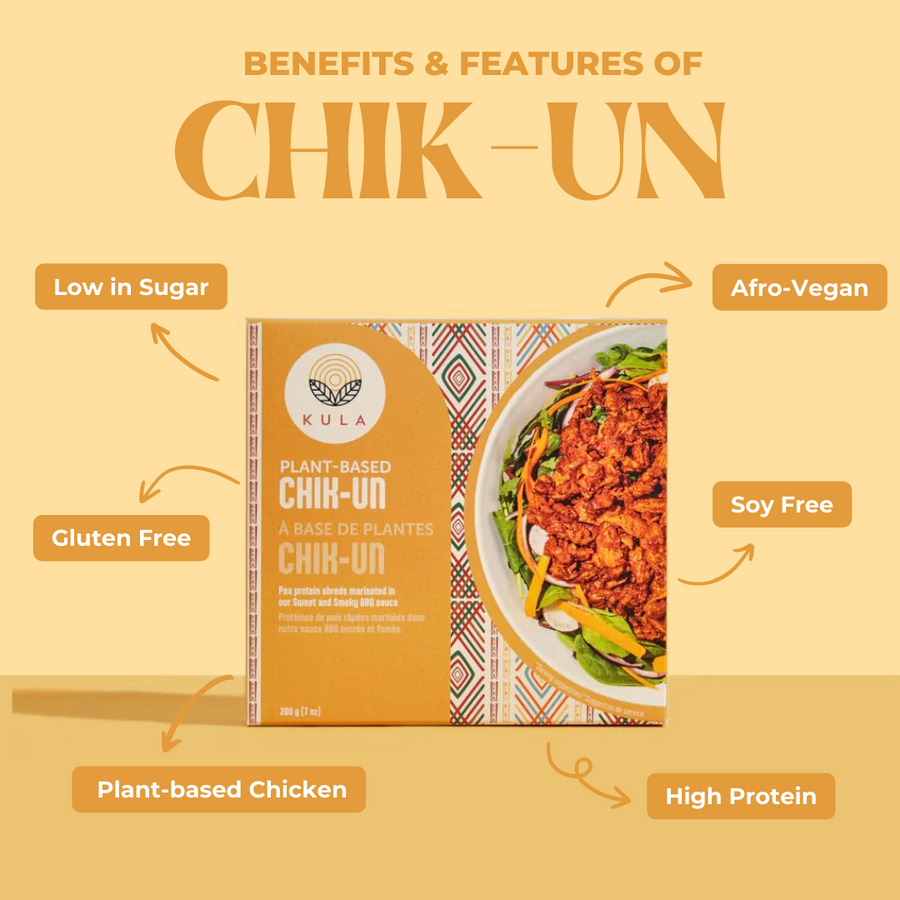10 Surprising Health Benefits of Swapping Meat for Plant Based Chicken
10 Surprising Health Benefits of Swapping Meat for Plant Based Chicken
Blog Article
All About Healthy Food: Advantages of Taking On Plant Based Options
The discussion bordering plant-based diet regimens has gained significant attention in the last few years. Several people are exploring the prospective health advantages, nutritional benefits, and environmental influences connected with these nutritional options. As people become more knowledgeable about their food's impact on wellness and sustainability, concerns emerge about the usefulness of embracing such a lifestyle. What certain modifications can one expect, and just how might these selections improve not just individual health however also the world's future?
Comprehending Plant-Based Diet Regimens
Many people link plant-based diet regimens generally with vegetarianism or veganism, these diets can include a broad range of eating patterns that prioritize whole, minimally processed plant foods. Such diet regimens frequently include fruits, vegetables, whole grains, nuts, seeds, and legumes, while limiting or removing pet items. This adaptability enables individuals to customize their dietary selections according to individual choices and dietary requirements. Some might take on a mostly plant-based diet plan while still periodically consuming meat or dairy products, usually referred to as a flexitarian method. The emphasis stays on integrating even more plant foods, which can bring about a varied array of flavors and meals. Comprehending these various analyses of plant-based consuming is crucial for appreciating its access and appeal in modern food culture.
Wellness Advantages of Plant-Based Foods
The wellness advantages of plant-based foods are considerable, offering a nutrient density advantage that supports overall health. Research shows that these foods can improve heart health and wellness and play a crucial function in effective weight administration. By integrating more plant-based alternatives, people might enhance their dietary selections and advertise long-lasting health and wellness.
Nutrient Density Advantage
Nutrient density plays a vital duty in the wellness benefits of plant-based foods, making them an engaging choice for those seeking a well balanced diet regimen. Plant-based foods, such as fruits, vegetables, beans, nuts, and whole grains, are frequently rich in necessary vitamins, minerals, and anti-oxidants while being reduced in calories. This high nutrient density permits people to eat fewer calories while still fulfilling their dietary demands. Furthermore, these foods are packed with nutritional fiber, advertising digestion health and assisting in weight monitoring. By incorporating nutrient-dense plant-based choices, customers can boost their overall health, sustain their immune systems, and decrease the risk of chronic illness. Inevitably, the nutrient density of plant-based foods emphasizes their significance in a health-conscious way of living.
Heart Health And Wellness Enhancement

Weight Administration Support
Along with promoting heart health, a plant-based diet can substantially aid in weight administration. This nutritional strategy stresses whole foods such as fruits, vegetables, legumes, nuts, and entire grains, which are generally lower in calories and greater in fiber contrasted to animal-based products. The high fiber material assists increase satiety, decreasing overall calorie consumption. Moreover, plant-based diet regimens are frequently abundant in essential nutrients while reduced in undesirable fats, making it simpler to keep a healthy weight. Plant Based Beef. Research study suggests that people that adopt a plant-based lifestyle often tend to have lower body mass indexes (BMIs) and experience more effective weight management contrasted to those that consume meat-heavy diets. Accepting plant-based choices is a tactical option for effective weight administration.
Nutritional Worth of Plant-Based Components
Plant-based active ingredients are abundant in important nutrients, providing a varied array of vitamins, minerals, and anti-oxidants that add to overall health and wellness. A comparison of healthy protein sources exposes that while animal items are usually seen as superior, lots of plant-based choices provide ample healthy protein and various other advantageous compounds. Understanding the dietary value of these ingredients can aid people make notified dietary options.
Vital Nutrients in Plants
Nutrient-rich components located in plants provide a diverse variety of essential minerals and vitamins that contribute greatly to total health. These ingredients are abundant in vitamins A, C, and K, which support immune function, vision, and blood clot, respectively. Furthermore, plants provide important minerals such as potassium, magnesium, and calcium, crucial for heart wellness, muscular tissue feature, and bone strength. The visibility of fiber in plant-based foods help digestion and advertises a healthy gut microbiome. Anti-oxidants, discovered abundantly in vegetables and fruits, assistance battle oxidative tension and minimize inflammation. Furthermore, several plant foods are low in calories yet high in nutrients, making them an outstanding selection for those seeking to preserve a healthy weight while making certain excellent nutrient consumption.
Contrasting Protein Resources
Protein resources differ considerably in their nutritional profiles, with plant-based active ingredients providing unique advantages. Unlike animal healthy proteins, which typically have saturated fats and cholesterol, plant proteins tend to be lower in these undesirable elements. Legumes, nuts, seeds, and entire grains are rich in essential amino acids, fiber, vitamins, and minerals. Lentils give high healthy protein content along with substantial iron and folate, while quinoa is a full protein, providing all 9 vital amino acids. In addition, plant-based healthy proteins are commonly gone along with by anti-oxidants and phytochemicals that Home Page support general health. The shift to plant-based healthy protein sources not only improves nutritional intake yet additionally lines up with lasting nutritional techniques, minimizing ecological impact and promoting long-term wellness advantages.
Environmental Impact of Plant-Based Consuming
As recognition of climate modification expands, numerous people are exploring lasting nutritional choices that can substantially reduce their environmental impact. Plant-based consuming has arised as a significant contributor to minimizing greenhouse gas emissions, which are primarily connected with livestock manufacturing. The cultivation of fruits, beans, grains, and veggies generally calls for fewer sources, such as water and land, compared to pet farming. Additionally, plant-based diets can bring about reduced deforestation, as less land is needed for grazing livestock or expanding animal feed. By moving towards plant-based alternatives, customers can support biodiversity and promote much healthier communities. In general, embracing plant-based consuming not only benefits individual health but also represents an essential step linked here towards ecological sustainability and conservation initiatives.
Conquering Common Misconceptions
While several people identify the benefits of a plant-based diet plan, a number of false impressions often hinder them from completely accepting this way of life. A typical belief is that plant-based diets lack adequate protein; nonetheless, countless plant resources, such as beans, nuts, and tofu, supply enough healthy protein. In addition, some think that this diet plan is expensive, when as a matter of fact, staples like beans, rice, and seasonal vegetables can be rather cost effective. One more misunderstanding is that plant-based eating is extremely restrictive, whereas it actually uses a varied variety of tastes and foods. Numerous fret that a plant-based diet plan might lead to deficiencies, yet with proper planning, people can acquire all needed nutrients, including vitamins and minerals, while appreciating a broad selection of delicious dishes. Broad Tips for Transitioning to a Plant-Based Way of life
Making the shift to a plant-based lifestyle can be an enriching experience, though it typically requires some support to navigate the preliminary modifications. Individuals are encouraged to begin gradually, integrating even more fruits, vegetables, vegetables, and whole grains right into their meals while minimizing meat and dairy usage. Dish preparation is essential; preparing a regular menu can help alleviate the change and prevent final undesirable selections. Discovering cooking techniques and brand-new recipes can also maintain and improve the experience excitement regarding plant-based eating. In addition, joining support teams or areas can provide inspiration and share beneficial tips. Lastly, staying educated regarding nutrition assurances well balanced dishes, avoiding shortages while promoting a healthy and balanced, enjoyable plant-based way of living.
Delicious Plant-Based Meal Concepts
Discovering tasty plant-based dish ideas can influence people to embrace an extra nutritious diet plan. One popular option is a passionate quinoa salad, featuring cherry tomatoes, cucumber, and a spicy lemon-tahini clothing. Another favorite is a tasty lentil stew, packed with carrots, celery, and great smelling herbs, best for a comforting dinner. For morning meal, over night oats made with almond milk, chia seeds, and topped with fresh berries offer a nourishing beginning to the day. Furthermore, a dynamic veggie stir-fry with tofu and a range of vibrant veggies can be a quick yet satisfying dish. Finally, velvety avocado toast on whole-grain bread, sprinkled with flavors and seeds, uses a basic yet tasty snack. These dishes showcase the range and splendor of plant-based eating.

Often Asked Inquiries
Can a Plant-Based Diet Offer Enough Protein?
The inquiry of whether a plant-based diet plan can supply sufficient healthy protein prevails. Numerous sources, consisting of legumes, nuts, seeds, and entire grains, can fulfill healthy protein requires efficiently, supporting a well balanced and nutritious diet regimen for people.
Are Plant-Based Diet Regimens Suitable for Children?
The viability of plant-based diet plans for kids relies on cautious planning. Sufficient nutrients should be ensured, including proteins, minerals, content and vitamins. With appropriate support, such diet regimens can sustain healthy and balanced growth and advancement in youngsters.
Exactly how Do I Dine Out on a Plant-Based Diet regimen?
Eating out on a plant-based diet plan includes looking for dining establishments with diverse menus, asking for modifications, and checking out vegan-friendly alternatives. Preparation in advance and interacting dietary choices can boost the eating experience while keeping nutritional choices.
What Prevail Allergens in Plant-Based Foods?
Common allergens in plant-based foods consist of soy, gluten, nuts, and seeds - Plant Based Beef. People complying with a plant-based diet plan needs to know these irritants and read tags meticulously to prevent unfavorable responses and guarantee secure intake
Can Plant-Based Diets Assist With Weight Management?
Research study indicates that embracing a plant-based diet regimen might help with fat burning because of its usually lower calorie thickness and greater fiber content. This combination can enhance satiety, aiding people handle their caloric consumption efficiently. Lots of individuals connect plant-based diet plans primarily with vegetarianism or veganism, these diet regimens can include a vast range of consuming patterns that focus on whole, minimally refined plant foods. Nutrient density plays an important role in the wellness benefits of plant-based foods, making them a compelling choice for those looking for a well balanced diet. Plant-based diets have actually been revealed to markedly improve heart wellness, as they commonly have aspects that support cardio feature. In addition to advertising heart health, a plant-based diet regimen can considerably help in weight management. An usual belief is that plant-based diet regimens do not have enough protein; nevertheless, numerous plant sources, such as beans, nuts, and tofu, give adequate healthy protein.
Report this page